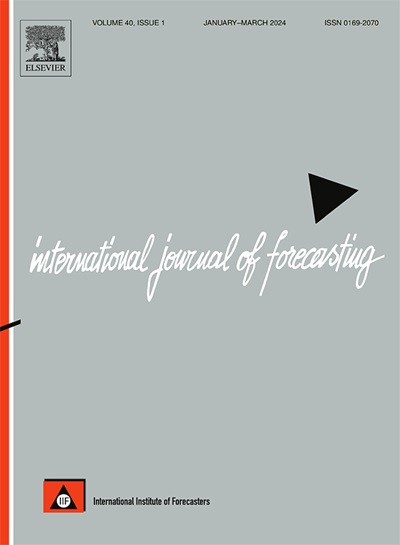Trust the experts? The performance of inflation expectations, 1960–2023
IF 7.1
2区 经济学
Q1 ECONOMICS
引用次数: 0
Abstract
Using the oldest continuous surveys of U.S. inflation expectations, I find that when inflation is low, the average professional forecaster is generally rational (unbiased, with serially uncorrelated errors) and efficient (exploits available information), and inflation moves one-for-one with their expectations, whereas the average consumer is biased, underreacts to inflation, and inflation moves independently of their expectations. In contrast, when inflation is high the average consumer is generally unbiased, rational, and efficient, and inflation moves one-for-one with their expectations, while the opposite is true of professionals. Neither the median consumer nor median professional is fully rational and efficient, with the consumer underreacting when inflation is low and overreacting when inflation is high. However, inflation moves one-for-one with the median consumer forecast when inflation is high. Results are consistent with an inflation process characterized by two regimes—a low-inflation regime in which consumers are inattentive, and a high-inflation regime in which consumers are highly attentive and inflation moves with their expectations.1
相信专家?通胀预期的表现,1960-2023
通过对美国通胀预期的最古老的连续调查,我发现,当通胀较低时,一般的专业预测者通常是理性的(没有偏见,有一系列不相关的错误)和有效的(利用现有信息),通胀与他们的预期是一对一的,而普通消费者是有偏见的,对通胀反应不足,通胀独立于他们的预期。相反,当通货膨胀率高时,普通消费者通常是公正、理性和高效的,通货膨胀率与他们的预期是一对一的,而专业人士则相反。中等消费者和中等专业人士都不是完全理性和高效的,消费者在通胀低的时候反应不足,在通胀高的时候反应过度。然而,当通货膨胀率高时,通货膨胀率与消费者预测中位数成正比。结果与以两种制度为特征的通货膨胀过程是一致的——低通货膨胀制度下,消费者是不注意的;高通货膨胀制度下,消费者是高度注意的,通货膨胀随着他们的预期而变化
本文章由计算机程序翻译,如有差异,请以英文原文为准。
求助全文
约1分钟内获得全文
求助全文
来源期刊

International Journal of Forecasting
Multiple-
CiteScore
17.10
自引率
11.40%
发文量
189
审稿时长
77 days
期刊介绍:
The International Journal of Forecasting is a leading journal in its field that publishes high quality refereed papers. It aims to bridge the gap between theory and practice, making forecasting useful and relevant for decision and policy makers. The journal places strong emphasis on empirical studies, evaluation activities, implementation research, and improving the practice of forecasting. It welcomes various points of view and encourages debate to find solutions to field-related problems. The journal is the official publication of the International Institute of Forecasters (IIF) and is indexed in Sociological Abstracts, Journal of Economic Literature, Statistical Theory and Method Abstracts, INSPEC, Current Contents, UMI Data Courier, RePEc, Academic Journal Guide, CIS, IAOR, and Social Sciences Citation Index.
 求助内容:
求助内容: 应助结果提醒方式:
应助结果提醒方式:


